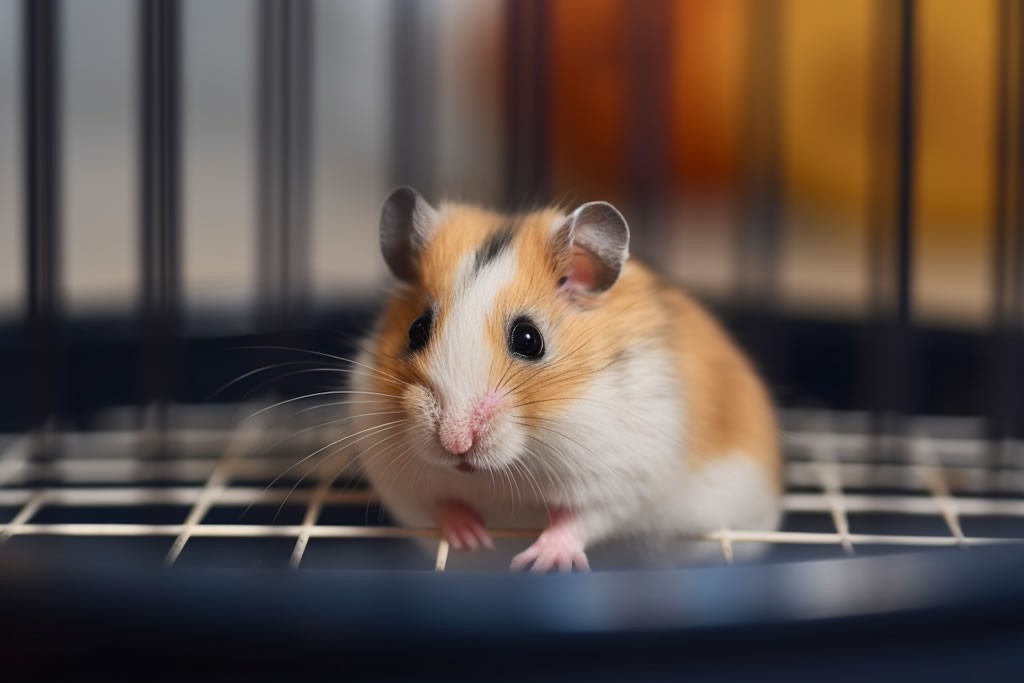Let’s talk about the elephant in the room – or rather, the 50+ tiny cocoa puff-sized surprises your hamster leaves daily. When I first brought home Mr. Whiskers, I thought his wheel was broken… until I realized those mysterious clinking sounds were actually his poop pellets ricocheting off the plastic. After 3 years of hamster ownership (and countless poop-sweeping marathons), here’s everything you need to know about your tiny poop factory.
The Hamster Poop Timeline: From Food to Fertilizer
24 Hours in the Life of a Sunflower Seed
Stage 1: 10 AM – Seed enters mouth
Stage 2: 10:07 AM – First chew (audible from across room)
Stage 3: 10:35 AM – Visible cheek bulge
Stage 4: 11:15 AM – Poop pellet #1 exits production line
Stage 5: 11:16 AM – Poop immediately kicked into water bowl
Scientific Fact: Hamsters have faster digestion than TikTok trends.
Poop Frequency: The Good, Bad & Ugly
The Normal Range (Healthy Hamsters)
| Hamster Type | Daily Poop Count | Shape | Color Range |
|---|---|---|---|
| Syrian | 50-75 | Oval pellets | Milk chocolate |
| Roborovski | 60-90 | Tiny spheres | Dark roast |
| Dwarf Campbell’s | 40-60 | Rice grains | Caramel swirl |
| Chinese | 55-70 | Slightly elongated | Espresso |
Pro Tip: Count poops during cage cleaning. <20 daily = vet time.
The Poop Crisis Chart: When to Panic
| Poop Appearance | Nickname | Possible Causes | Emergency Level |
|---|---|---|---|
| Watery & smelly | “Swamp sludge” | Wet tail disease | 🚨 ER visit now |
| Hard & dry | “Rabbit bullets” | Dehydration | ⚠️ Increase hydration |
| Green tint | “Avocado toast” | Antibiotic reaction | 📞 Vet consult |
| Red streaks | “Cinnamon dust” | Rectal bleeding | 🚑 Immediate care |
True Story: My Syrian’s blue-tinted poops traced back to stolen crayon. $200 X-ray later…
The Poop Factor Matrix: What Changes Output
| Factor | Effect on Poop | Survival Tip |
|---|---|---|
| Age (Puppy vs Senior) | Babies: 2x more poop | Upgrade cage size monthly |
| Stress (New home) | Diarrhea or constipation | Use old bedding during moves |
| Diet (Protein boost) | Darker, firmer pellets | Introduce new foods slowly |
| Exercise | 30% more output | Wheel mandatory |
Poop Management 101: From Novice to Ninja
The 3-Point Cleaning System
- Daily: Spot-clean poop clusters with mini vacuum ($15 Amazon gem)
- Weekly: Full bedding change (wear mask – poop dust is real)
- Monthly: Cage sterilization (white vinegar beats bleach)
Poop Recycling Program
- Fertilizer for houseplants (they’ll thrive)
- DIY hamster nest material (they don’t care)
- Cat distraction devices (not recommended)
The Poop-Obsessed Owner’s Toolkit
| Item | Purpose | Pro Hack |
|---|---|---|
| Jewelers loupe | Stool inspection | Check for parasite eggs |
| Gram scale | Poop weight tracking | 0.1g decreases = trouble |
| UV flashlight | Urine detection | Find secret pee corners |
| Instagram account | #HamsterPoopChronicles | Connect with other obsessives |
FAQ: Poop Questions You’re Too Embarrassed to Ask
Q: Why does my hamster eat its poop?
A: They’re not gross – it’s called cecotrophy. They re-digest special night poops for nutrients.
Q: Can poop predict gender?
A: Myth! But males drag poop to mark territory. Congrats – you’ve got a furry Picasso.
Q: Why is there poop IN the water bottle?
A: Hamster darts. 3 solutions: heavier base, bottle guard, or acceptance.
Poop-Based Enrichment Activities
- Hide & Seek: Bury mealworms in poop-free zones
- Poop Golf: Use chopsticks to relocate pellets to litter area
- Archaeology Dig: Layer bedding to track poop timelines
Final Thought:
Next time you’re knee-deep in hamster pellets, remember – each tiny turd means your furry friend is thriving. Now if you’ll excuse me, Mr. Whiskers just launched another “cage cleanse”…



